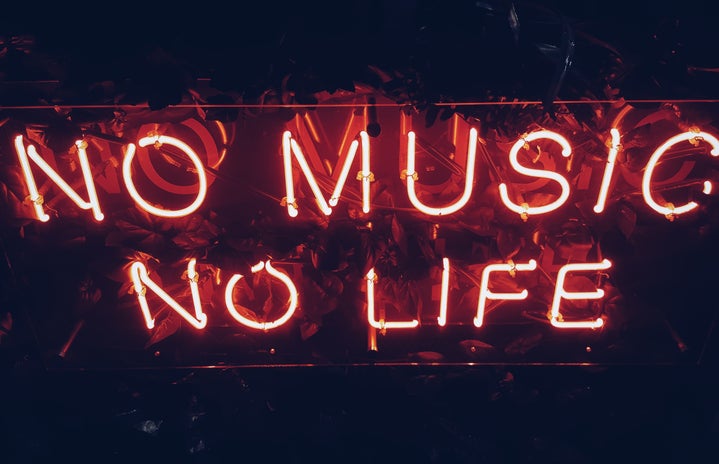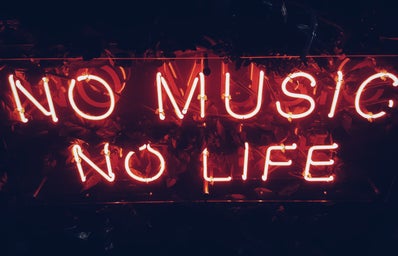Even though all of their work is sung in Arabic, Lebanese band Mashrou’ Leila’s music can strike a chord with the casual listener. Featuring a darker and more evocative sound than most modern pop artists today, perhaps with the exception of Lorde, they are a band worth learning more about, especially because their music has more to it than a good beat.
Formed in 2008 in Beirut as a way to vent about the stress caused by university and an unstable political situation, Mashrou’ Leila currently consists of Hamed Sinno as the lead vocalist, Ibrahim Badr on bass guitar, Carl Gerges on drums, Haig Papazian on the violin and Firas Abou Fakher on guitar and keyboard. According to their website, their name, “An Overnight Project” in English, comes from the nocturnal nature of their project, which was characterized by all-night jame sessions. They have released four albums, have performed live around the world and have even taught a course at NYU. In 2013, they became the first Middle Eastern artist to be featured on the cover of Rolling Stone. Although they have received great critical acclaim abroad, they are still considered an underground band in Lebanon.
“We’re always played on the radio in Israel. We’re never played on the radio in Lebanon,” Sinno told The New Yorker in 2016.
Mashrou’ Leila’s most recent album was released in 2015, and is arguably their most politically-charged discography yet. Also their most pop-sounding album, all of the topics broached take place in the socially charged spaces of Beirut’s nightlife, according to BRIC.
“‘Maghawir’ [the fifth song on the album] narrates a possible version of a club shooting in Beirut, drawing on references to real Lebanese case histories from two different shootings that took place within the same week, both of which resulted in the deaths of extremely young victims, each of who was out celebrating their birthday,” the band told VICE.
Each line of the song references or alludes to the “rampant and un-policied violence” experienced in Lebanon, bringing up everything from the “recruitment of Lebanese men into locally-revered militarized masculinities” to “the preservation of men’s honor” through dueling.
“In marrying the lyrics with upbeat dance-worthy music, the song gestures towards the evident normalization of such behavior, wherein lies the critique of the ‘capital of the night,’ by questioning whether or not violence is just another thing we can dance to, another element of the country’s nocturnal paysage under the continued patronage of the political elite which often chooses to protect criminals because of vested political interests,” the band told VICE.
Gun violence is highly prevalent in Lebanon; according to The New Arab, there are millions of licensed guns in a population of some four million people, which are often used in celebratory gunfire. Though there is a 1959 law that prohibits “anyone firing in residential areas or in a crowd, whether their gun is licensed or not,” the police have approached celebratory gunfire with a strategy of non-enforcement.
Part of this is to do with Lebanon’s “machismo” culture. According to Joumana Haddad, author of Superman is an Arab, “many men are trapped in a vicious circle of violence that derives from a flawed theory of manhood.” Lebanese society still strongly follows patriarchal norms; men must never show weakness and violence is used as a way to earn respect.
The related concept of how the patriarchy affects women is another issue Mashrou’ Leila has tackled in their music. Working with Jessy Moussallem, an emerging female director from Lebanon, the all-male band created a music video where women were the heroes of the narrative. As lyrics discuss betrayal, struggle and conflict, the video shows Arab women reacting to the cry of the chorus, ‘aleihum’ (charge!), which tells them to treat oppression as the “fertile ground from which resistance can be weaponised,” rather than as a source of victimhood.
In addition to portraying the strength of Lebanese women, the music video for “Roman” critiques the portrayal of Arab and Muslim women as victims in Western media.
“The video self-consciously toys with the intersection of gender with race by celebrating and championing a coalition of Arab and Muslim women, styled to over-articulate their ethnic background,” the video’s YouTube description states. “This seeks to disturb the dominant global narrative of hyper-secularised (white) feminism, which increasingly positions itself as incompatible with Islam and the Arab world, celebrating the various modalities of middle-eastern feminism.”
Though Beirut is often portrayed as the “Paris of the Middle East,” violence against women in Lebanon is widespread. According to a 2016 survey by Promundo, 31 percent of women in Lebanon had experienced intimate partner violence. In a 2017 survey, the advocacy group ABAAD found that one in four women had been subjected to some kind of assualt.
Discriminatory legislation is another issue. For example, under current law, a Lebanese woman cannot pass her nationality to her husband or children if she marries a foreigner. In the case of a divorce, there is the possibility these children would become stateless if the father returns to his home country. In addition, until recently, women could not travel with her children or issue them passports without her ex-husband’s permission due to discriminatory divorce laws.
Even women in parliament are not immune to discrimination.
“I have MPs who treat me as if I am either a flower or something fragile,” Paula Yacoubian, the first woman in Lebanon’s parliament not aligned with any political party, told Middle East Monitor. “We don’t have a culture that understands that women are equal to men.”
Lebanese culture is also not known for being very open to the LGBTQ community, something Mashrou’ Leila has been very outspoken about, partly due to the fact that their lead singer, Hamed Sinno, is one of the only openly gay celebrities in the Arab world.
In their song “Tayf,” the band discusses the closure of a popular gay club in Beirut that Sinno used to frequent.
Their outspokenness has caused a lot of controvery in the Middle East, however. In 2017, the band performed in Cairo where a group of fans were photographed waving a rainbow flag, according to Rolling Stone. In the days following, the local musician’s syndicate banned Mashrou’ Leila from playing in the country and Egyption authorities cracked down on the country’s gay community, arresting dozens on charges of “debauchery.” In 2018, Jordan’s Interior Ministry cancelled a planned performance after members of parliament protested Sinno’s sexuality; the band had previously been barred from performing in Amman in 2016.
Though casual observers might find the band’s political commentary unique, the band itself would beg to disagree.
“Western media often describe us as something out of the ordinary: an Arab band with a homosexual lead singer and controversial lyrics (for the region). We are not that special,” they told The New Arab World. “I think part of the reason for portraying us in this light is to help serve their [the West’s] political agenda about the ‘Arab world’.”
Whether you come for the lush, atmospheric beats or the candour of their lyrics, you are sure to find something worth staying around for – and you might even learn a thing or two.


